Celebrating Kwanzaa
What is Kwanzaa?
“Harambee!!!!!!!” Thousands of people worldwide can be heard shouting this Kiswahili word. It means “let’s pull together” during the seven-day Kwanzaa celebration. Kwanzaa is an African-American cultural holiday celebrated December 26th through January 1st each year. It marks the time when African-Americans, and people of African descent all over the world, celebrate their heritage.
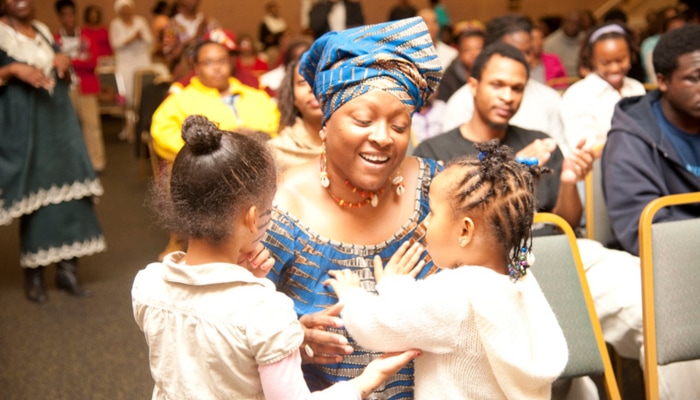
Seven Principles of Kwanzaa
Kwanzaa is a pulling together of various African-based cultures and traditions. Like Harambee, Kwanzaa is a Kiswahili word meaning first fruits. The Seven Principles of Kwanzaa, known as the Nguzo Saba, are also given Kiswahili names: Umoja (Unity), Kujichagulia (Self-Determination), Ujima (Collective Work and Responsibility), Ujamaa (Cooperative Economics), Nia (Purpose), Kuumba (Creativity), Imani (Faith). Each day, celebrants ask one another “Habari Gani”, meaning “What’s the news”. The response is one of the seven principles, depending on what day it is. Each night, a candle is lit in honor of the principle of the day. Participants share how they have lived the principle throughout the year and will strive to continue abiding by it in the upcoming year.
Traditional Foods
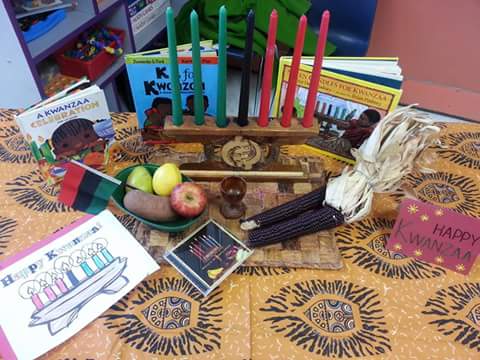 The greetings and principles of Kwanzaa are Kiswahili, which originates in southeastern Africa. The foods are traditional to West Africa and the American South. These include yams, rice, greens, and corn.
The greetings and principles of Kwanzaa are Kiswahili, which originates in southeastern Africa. The foods are traditional to West Africa and the American South. These include yams, rice, greens, and corn.
Kwanzaa Traditions
Though Kwanzaa is fifty-one years old, every part of this cultural celebration is steeped in centuries-old traditions. From honoring the ancestors by pouring libation, to beating the djembe drum, each part of the celebration is designed to both practice and pass down cultural traditions that have helped African people to maintain strong communities.
The Sankofa
The purpose of Kwanzaa could be summed up by understanding the meaning of the West African symbol called Sankofa. The Sankofa bird neck is turned backwards in order to fetch the egg on its back. It is a common reminder that those who choose to celebrate Kwanzaa are required to look back. Remember and fetch their rich cultural heritage in order to move forward in strength and unity. It is a reminder that each generation is standing on the shoulders of those who came before, and a warning not to forget the cultural traditions of the past.
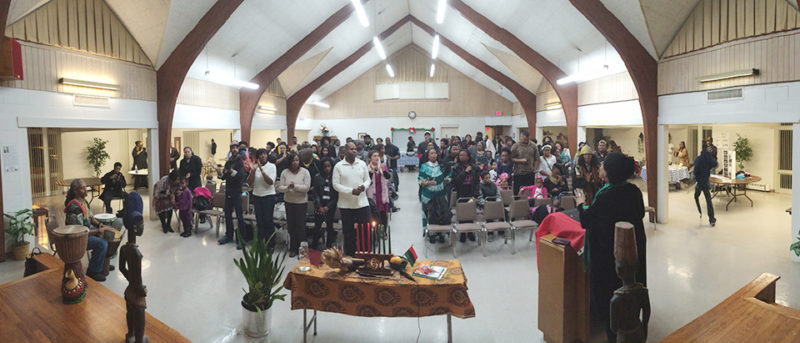
Although the celebration is filled with strong cultural displays, the general public often generalizes Kwanzaa as a “Black Christmas.” However, nothing could be further from the truth. Kwanzaa is a beautiful way of honoring the ancestors who carried these traditions in the past. It is a time to celebrate having lived the Nguzo Saba all year. It is also a commitment to show the younger generations the importance of carrying these traditions into the future. Yes, there are gifts given to children during Kwanzaa called Zawadi, another Kiswahili word, however these gifts are given as a way of encouraging and rewarding children for living the seven principles of the Nguzo Saba. Kwanzaa is a time for cultural commemoration and celebrating the fruitful life that comes from collectively practicing the Nguzo Saba.
Greensboro Kwanzaa Collective
The founders of Kwanzaa created the celebration in order to restore and reaffirm Black people’s rootedness in African culture. Since 2010, the Greensboro Kwanzaa Collective (GSOKC) has worked to carry out this mission by hosting a full, seven-day celebration for the community. GSOKC follows in the footsteps of other organizations and community leaders who have hosted Kwanzaa celebrations in the Greater Greensboro area since the late 1970s.
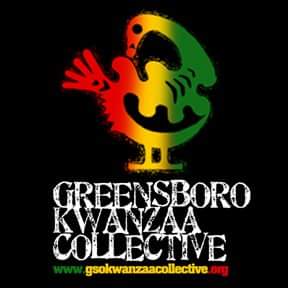 The GSOKC is a program and partner of Indigos Cultural Arts Centers, which together is able to ensure that there is a seven-day celebration each year in Greensboro. The program opens with an African drum call to signal that it is time for the community to gather, and features performances and keynote messages from local artists and speakers. Libation is poured, the candles are lit, and celebrants sing Lift Evry’ Voice And Sing, also known as the Black National Anthem. The program ends with everyone shouting HARAMBEE and enjoy the traditional feast known as the karamu.
The GSOKC is a program and partner of Indigos Cultural Arts Centers, which together is able to ensure that there is a seven-day celebration each year in Greensboro. The program opens with an African drum call to signal that it is time for the community to gather, and features performances and keynote messages from local artists and speakers. Libation is poured, the candles are lit, and celebrants sing Lift Evry’ Voice And Sing, also known as the Black National Anthem. The program ends with everyone shouting HARAMBEE and enjoy the traditional feast known as the karamu.
By Guest Blogger Tonya Poole, Member of the GSOKC
More information about the GSOKC, as well as upcoming events, can be found on Facebook HERE.
Want to see more blogs like this and get notifications on local events and happenings? Subscribe to TMoM’s free weekly newsletters here.
Another Blog you Might Like: Uncomplicating Kwanzaa
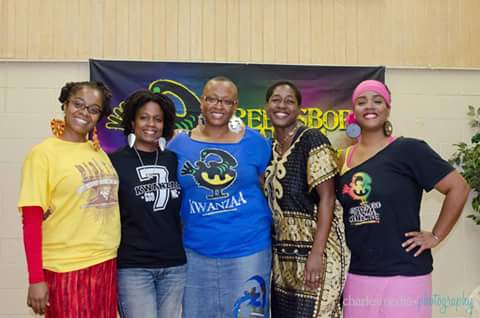

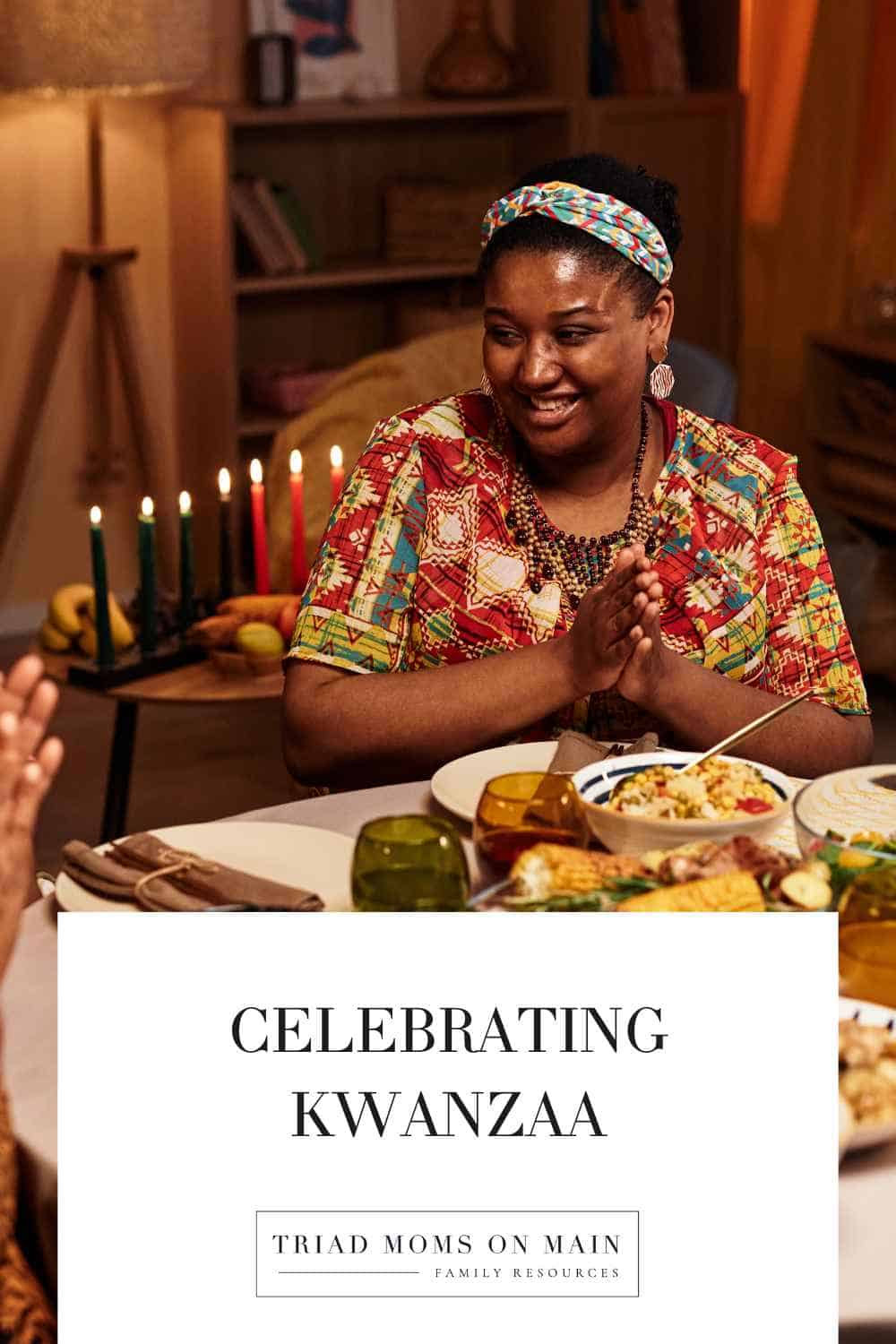







































This is fantastic! I am planning to bring the family to at least one or two evening events!